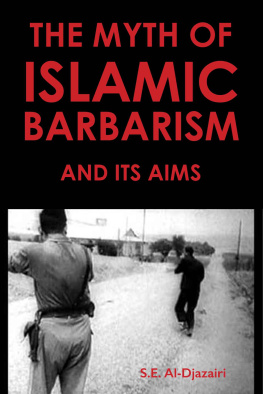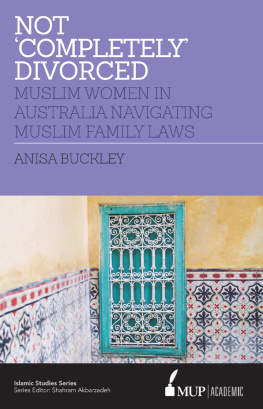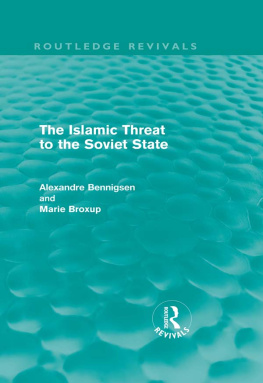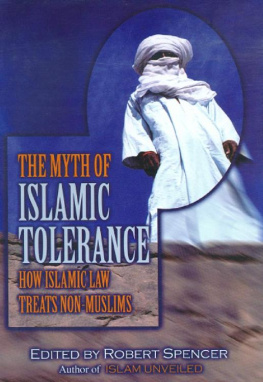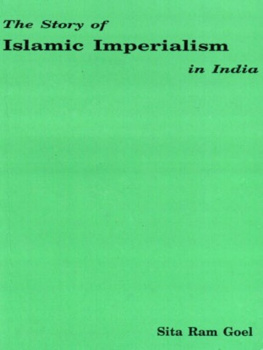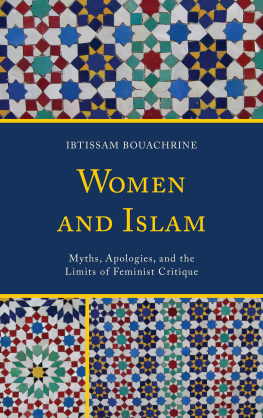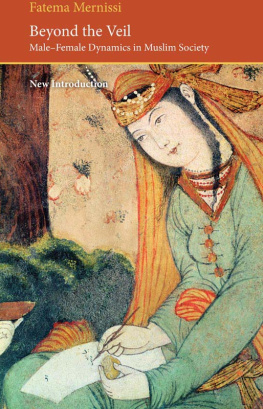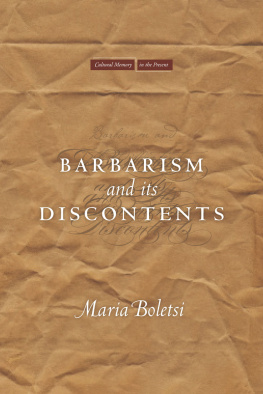Salah Eddine Al-Djazairi - The Myth of Muslim Barbarism and Its Aims
Here you can read online Salah Eddine Al-Djazairi - The Myth of Muslim Barbarism and Its Aims full text of the book (entire story) in english for free. Download pdf and epub, get meaning, cover and reviews about this ebook. year: 2016, publisher: Bayt Al-Hikma Press, genre: Religion. Description of the work, (preface) as well as reviews are available. Best literature library LitArk.com created for fans of good reading and offers a wide selection of genres:
Romance novel
Science fiction
Adventure
Detective
Science
History
Home and family
Prose
Art
Politics
Computer
Non-fiction
Religion
Business
Children
Humor
Choose a favorite category and find really read worthwhile books. Enjoy immersion in the world of imagination, feel the emotions of the characters or learn something new for yourself, make an fascinating discovery.
- Book:The Myth of Muslim Barbarism and Its Aims
- Author:
- Publisher:Bayt Al-Hikma Press
- Genre:
- Year:2016
- Rating:4 / 5
- Favourites:Add to favourites
- Your mark:
- 80
- 1
- 2
- 3
- 4
- 5
The Myth of Muslim Barbarism and Its Aims: summary, description and annotation
We offer to read an annotation, description, summary or preface (depends on what the author of the book "The Myth of Muslim Barbarism and Its Aims" wrote himself). If you haven't found the necessary information about the book — write in the comments, we will try to find it.
The Myth of Muslim Barbarism and Its Aims — read online for free the complete book (whole text) full work
Below is the text of the book, divided by pages. System saving the place of the last page read, allows you to conveniently read the book "The Myth of Muslim Barbarism and Its Aims" online for free, without having to search again every time where you left off. Put a bookmark, and you can go to the page where you finished reading at any time.
Font size:
Interval:
Bookmark:
THE MYTH OF ISLAMIC BARBARISM
AND ITS AIMS

The same French soldier (on the book cover) has just shot the Algerian
S.E. Al-Djazairi
MSBN Books
Copyright
S.E. Al-Djazairi: The Myth of Islamic Barbarism and its Aims, MSBN Books, 2020 edition.
Website: msbnbooks.co.uk
Email:
S.E. Zaimeche Al-Djazairi
No resale, reproduction, or downloading of this work on the internet is allowed.
Use of extracts from it is permitted as long as such extracts do not exceed what is necessary to make an argument.
Design and Artwork: N. Kern
Cover: French soldier about to shoot Algerian civilian walking away
Other works by the same author can be found at Amazon.co.uk Kindle Books. Alternatively Google his name.
About The Author
S.E Al-Djazairi lectured and researched at the University of Constantine in Algeria. He also tutored at the Department of Geography of the University of Manchester, and worked as a research assistant at UMIST (Manchester) in the field of History of Science. His publications include papers on environmental degradation and desertification, issues of economic and social development, as well as politics and change in North Africa. He also contributed historical entries to various encyclopaedias.
Website: msbnbooks.co.uk
Email:
Recently Published works by the same author:
Islam in China, 3 vols.
Our Civilisation (5 vols).
The Destruction of the Environment in/of the Muslim World
THIS WORK
The Sword of Islam, The Islamic Threat, The Roots of Muslim Rage, The Green Peril, Islams New Battle-Cry: in a veritable flood of publications with these and similar titles, various authors seek to explain Islam to us, says Lueg, who adds:
Simplified and undifferentiated descriptions of Islam in the media fan the flames of vague fears of a supposed threat to Western culture, and create a hostile image of Islam.
For a long time the Islamic Middle East was seen as the polar opposite of the West and the enemy of Christianity. Hardly anything on the Middle East, or on historical clashes, or points of contact between the East and the West, is learned in schools. Instead of knowledge or at least an unbiased examination of Islamic societies, we have clichs and stereotypes, which apparently make it easier to deal with the phenomenon of Islam. The Western image of Islam is characterised by ideas of aggression and brutality, fanaticism, irrationality, medieval backwardness and antipathy towards women.
This image, besides its genesis, implications, usages and outcomes, all date centuries back, ten precisely (as shown in Chapters 1-2-3-4). Vitkus writes:
The demonisation of the Islamic East is a long and deeply-rooted tradition in the West - spanning the centuries, from the early medieval period to the end of the 20 th century. It harks back to ancient representation of Eastern empires and invading hordes that predate Islam, including the Assyrians and the Persians of the Ancient World. The Classical and Biblical stereotypes that were established in the collective consciousness of the West were further sharpened and solidified later by the historical experience of Holy War that began with the rise of Islam, continued during the period of the crusades, and endured during the Spanish Reconquista and Ottoman imperialism. In Western Europe, a long history of military aggression and cultural competition (taking place primarily, but not entirely, in the Mediterranean Basin) served as the basis for the prevailing conception of the Islamic Orient during the 16 th and 17 th centuries.
After the 17 th century, as the Ottoman realm began to enter its long phase of decline (18 th -19 th centuries), whoever Christian took whatever weapon was around and rid himself of the Turks, whilst elsewhere, the Muslim land, just as other lands, were carved up between the now vigorous and triumphant Europeans.
As Muslims by now lay vanquished, under firm Western Control, they served as canon fodder in more than one place (First and Second World Wars, Spanish Civil War (1936-1939) Vietnam (1945-1954)) whilst their lands were being systematically looted. Now, the centuries old Islam and Muslim savagery, backwardness, etc, had no reason detre and so were pushed back.
In the second half of the 20 th century, the Cold War raged between the ex Soviet Union and the West, and Muslims served the anti Bolshevik cause, doing a lot of the dying in places such as Vietnam, Afghanistan, Korea, even. Consequently, their usual barbarism and threat were relegated to the background. During that time, it was left wingers, the world over, especially in Central and Southern America, who were the focus of the ire of the civilised world, being liquidated in their hundreds of thousands. The CIA led the task, assisted by the Church here, thugs there, International Aid Agencies elsewhere, and the media everywhere. Then, suddenly, as the Soviet Union began to unravel, throughout much of the 1980s (in large measure thanks to fickle Muslims), the West rediscovered the centuries old foe again. Takeyh and Gvosdev sum up this new phase for us:
Having triumphed over Communism, the Western system of free-market economics and liberal pluralist democracy was now seemingly under threat from a new rival, for "with the death of communism, Islam is the global alternative," energized into a mass movement following the Gulf War. Samuel P. Huntington warned his audience that the Islamic Resurgence has manifested itself in every Muslim country; in almost all it has become a major social, cultural, and intellectual movement, and in most it has had a deep impact on politics." Hassan al-Turabi of Sudan confidently predicted, Objectively, the future is ours," and Western scholars began to echo his assessment by predicting that the future of the Muslim world lies with the Islamic political alternative." The emergence of an international radical Muslim network, epitomized by Al-Qaeda, an outgrowth of the guerilla struggle waged against the Soviet Union in Afghanistan during the 1980s, seemed to presage a new chapter in the struggle of militant Islam against the West.
According to many Western commentators [Esposito noted just when the war on Islam began in 1992]
Islam and the West are on a collision course. Islam is a triple threat: political, demographic, and socio-religious. For some, the nature of the Islamic threat is intensified by the linkage of the political and the demographic.
Patrick Buchanan could write that while
Negotiating for hostages with Shiite radicals who hate and detest us, their Muslim brothers are populating Western countries. The Muslim threat is global in nature as Muslims in Europe, the Soviet Union, and America proliferate and prosper.
Other observers, such as Charles Krauthammer, in the midst of the un-ravelling of the Soviet Union, spoke of a global Islamic uprising, a vision of Muslims in the heartland and on the periphery of the Muslim world rising up in revolt: a new arc of crisis... another great movement is going on as well, unnoticed but just as portentous: a global intifada.
Hippler and Lueg, writing in the mid 1990s, also noted how:
In almost all forms of the media, experts seek to enlighten us on the new dangers from the East: holy wars, fanatical masses, the revenge of the Middle Ages on modernity and of religion on the Enlightenment. Islam is sometimes a challenge, sometimes a threat. The conquest of Vienna by the Turks is apparently once again imminent. With Khomeini, Gaddafi, Saddam Hussein, Arafat and the Algerian fundamentalists, the anti-Western wave is rolling on, at any rate splashing across popular magazines and television screens. The threat might be a spiritual one, an Oriental counter-model to Western civilisation; it might result in stopping the flow of oil, or in a cultural invasion by immigrants from Turkey to the Maghreb. It might lie in the Islamic atom bomb, in terrorism or in a threatened Islamic fundamentalist world revolution in the Iranian mould. Simple minds might even see it as a battle of Islam against Christianity, or against unbelievers. In Europe and the USA all these perceptions of threats exist, sometimes side by side and at other times separately. Sometimes they crop up suddenly and compete with each other, and at other times they are systematized and compounded, all depending on what is required or desired in a particular situation.
Font size:
Interval:
Bookmark:
Similar books «The Myth of Muslim Barbarism and Its Aims»
Look at similar books to The Myth of Muslim Barbarism and Its Aims. We have selected literature similar in name and meaning in the hope of providing readers with more options to find new, interesting, not yet read works.
Discussion, reviews of the book The Myth of Muslim Barbarism and Its Aims and just readers' own opinions. Leave your comments, write what you think about the work, its meaning or the main characters. Specify what exactly you liked and what you didn't like, and why you think so.

